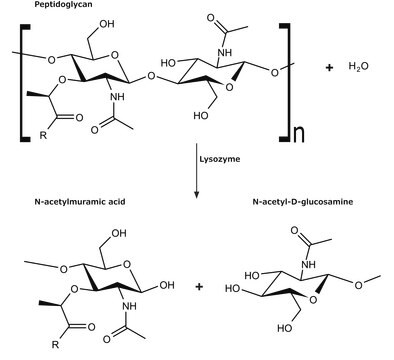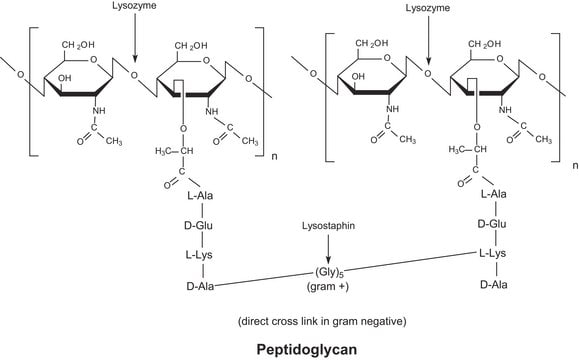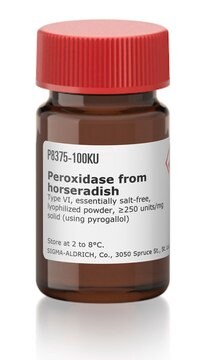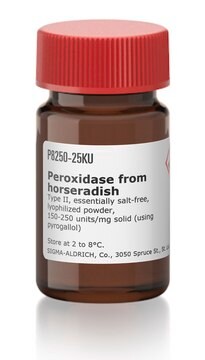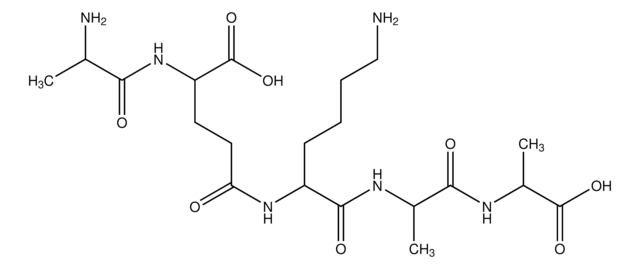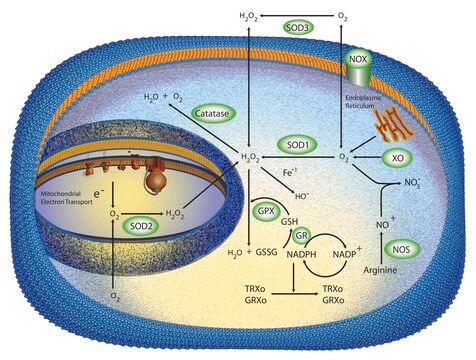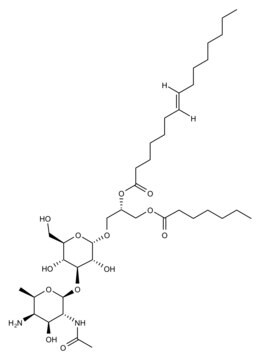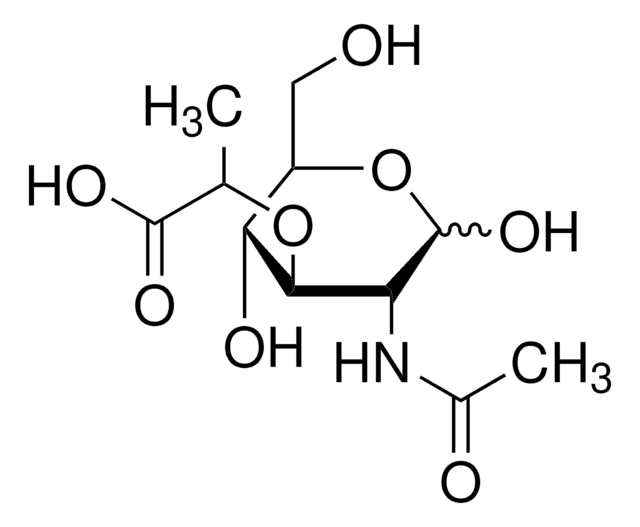53243
Peptidoglycan from Micrococcus luteus
Synonym(s):
PGN
Sign Into View Organizational & Contract Pricing
All Photos(1)
About This Item
Recommended Products
biological source
bacterial (Micrococcus luteus)
form
lyophilized (cake)
color
white
storage temp.
−20°C
Application
Peptidoglycans are major components of bacterial cell walls, especially of gram-positve bacteria. Peptidoglycan are composed of alternating residues of β-(1,4) linked N-acetylglucosamine and N-acetylmuramic acid and peptide chains that create cross-linkage to create mesh structures. Peptidoglycans from different bacterial species can be compared to determine structural and compositional differences/variations and phylogenetic evolution. Peptidoglycans from different species may be used to differentiate and characterize peptidoglycan hydrolases.
Other Notes
To gain a comprehensive understanding of our extensive range of Polysaccharides for your research, we encourage you to visit our Carbohydrates Category page.
Storage Class Code
11 - Combustible Solids
WGK
WGK 3
Flash Point(F)
Not applicable
Flash Point(C)
Not applicable
Personal Protective Equipment
dust mask type N95 (US), Eyeshields, Gloves
Choose from one of the most recent versions:
Certificates of Analysis (COA)
Lot/Batch Number
Don't see the Right Version?
If you require a particular version, you can look up a specific certificate by the Lot or Batch number.
Already Own This Product?
Find documentation for the products that you have recently purchased in the Document Library.
Customers Also Viewed
Chengbao Liu et al.
Archives of insect biochemistry and physiology, 103(4), e21648-e21648 (2019-12-07)
Hexamerin was originally identified as a storage protein but later confirmed to be involved in many physiological processes. In the present study, we cloned and characterized a novel hexamerin complementary DNA sequence from the Chinese oak silkworm, Antheraea pernyi (Ap-hexamerin)
Siqi Zhao et al.
Developmental and comparative immunology, 86, 78-85 (2018-05-08)
Pattern recognition receptors (PRRs) are employed in insects to defend against infectious pathogens by triggering various immune responses. Peptidoglycan recognition proteins (PGRPs), a vital family of PRRs, are widely distributed and highly conserved from vertebrates to invertebrates. To date, five
Articles
Peptidoglycans
Our team of scientists has experience in all areas of research including Life Science, Material Science, Chemical Synthesis, Chromatography, Analytical and many others.
Contact Technical Service

